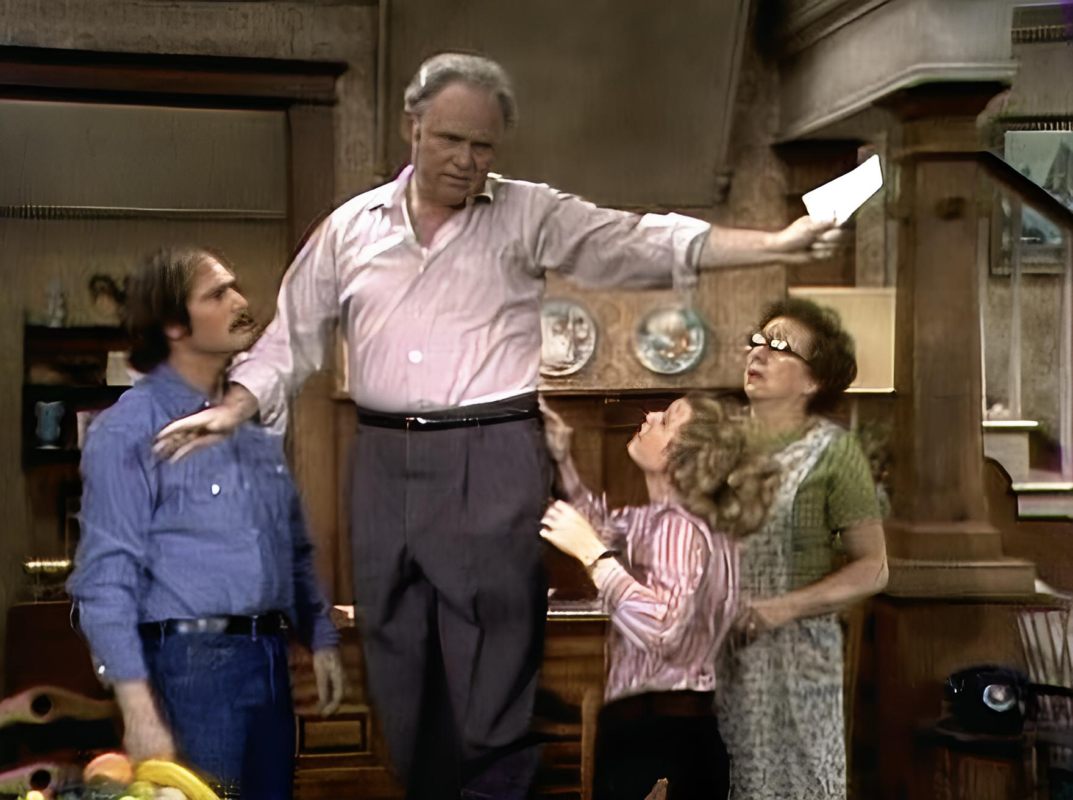
Sociologist and feminist theorist Patricia Hill Collins has critiqued the influential television show “All in the Family” for its potential role in perpetuating social prejudices. Collins, known for her work on race, gender, and class, argued that characters like Archie Bunker might not always be effective in challenging conservative and discriminatory viewpoints, and could, in fact, reinforce them.
“All in the Family,” created by Norman Lear and aired from 1971 to 1979, was praised for addressing controversial social issues with humor. The show centered on Archie Bunker, a working-class man with deeply ingrained prejudices, portrayed by Carroll O’Connor. Through Archie’s interactions with his more progressive family members, the show aimed to critique and expose various forms of bigotry.
However, Collins raised concerns that such a portrayal could inadvertently validate the prejudices it sought to criticize. She argued that viewers who share Archie’s conservative and discriminatory views might see their beliefs reflected and affirmed rather than challenged. This, she suggested, could undermine the show’s intended progressive impact.
“While ‘All in the Family’ aimed to shed light on social prejudices, using a character like Archie Bunker can be a double-edged sword,” Collins stated in a lecture. “The risk is that instead of prompting critical reflection and change, such portrayals might actually reinforce existing biases among conservative viewers.”
Collins’s critique touches on the broader issue of how media representations can influence societal attitudes. Satirical and comedic depictions of serious issues require a delicate balance to ensure that the intended message is conveyed effectively. If the satire is not clearly understood, it can lead to the normalization or even reinforcement of the prejudiced views being satirized.
Media critic Rachel Adams commented on Collins’s perspective: “Patricia Hill Collins highlights a significant challenge in using comedy to address social issues. The effectiveness of such an approach depends on the audience’s ability to discern the critique embedded in the humor. When dealing with deeply entrenched prejudices, this can be particularly complex.”
Despite these criticisms, “All in the Family” remains a landmark show in television history, credited with opening up important conversations about race, gender, and social justice. The show’s legacy includes its pioneering role in bringing these issues into the public eye, even as debates continue about the best ways to use media to challenge societal norms.
Collins’s reflections serve as an important reminder of the complexities involved in using media for social change. As television and other forms of entertainment continue to evolve, her insights emphasize the need for thoughtful and nuanced approaches to representing and critiquing social prejudices.
